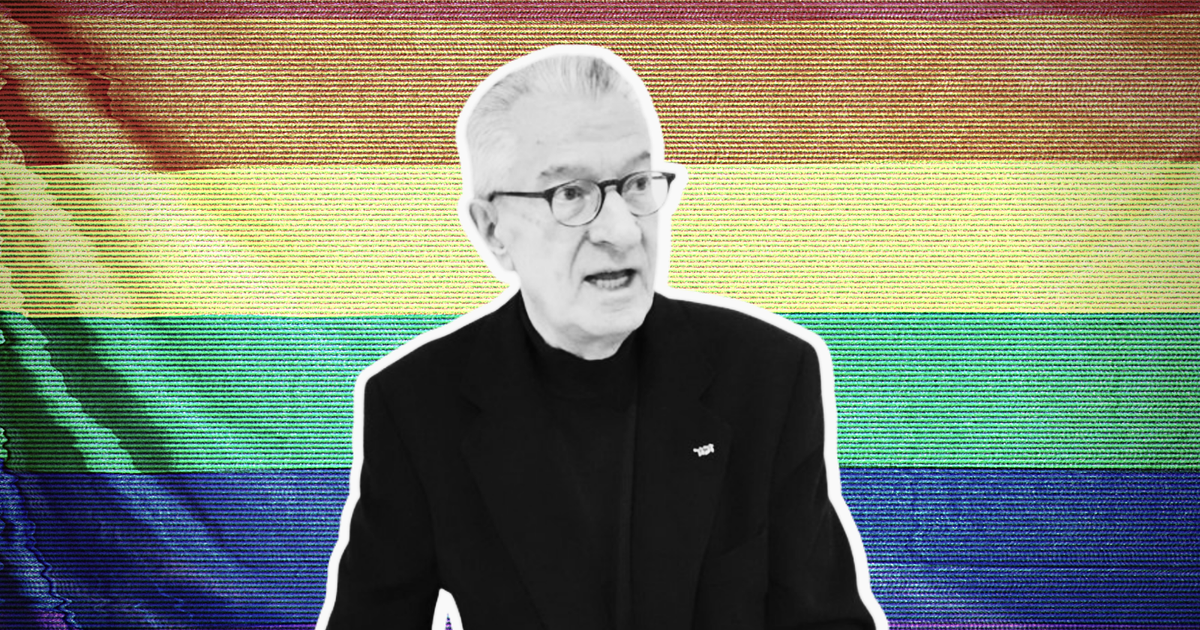‘We were revolutionaries’: Angelo Pezzana, founder of Italy’s first LGBT movement - 3 minutes read

FUORI! was founded in a different time – before divorce and abortion were legalised in Italy (in 1974 and 1978, respectively), before openly LGBT people graced TV sets and films, and decades before same-sex civil unions were allowed (in 2016).
Pezzana describes how his bookshop became a sort of informal meeting place and safe space for gay people – its name, Hellas, served as a subtle reference and homage to the Ancient Greeks’ open-minded attitude towards homosexuality.
“At that time,” he says, “we [gay people] were invisible, and society often referred to us in very offensive ways and with slurs. We were forced to live only at night, and we couldn’t establish strong and long-lasting relationships because of discrimination.”
FUORI! struggled for “respect, not tolerance”, he adds. “We only wanted to be human beings like everyone else, and part of a society that was striving to be ‘modern’, including other fights for abortion, divorce, etc.”
Despite the challenging context, FUORI! instantly found supporters, and success in making LGBT Italians and their demands visible on a national level for the first time.
Within two months, Pezzana says, they had 40 active members and copies of their magazine had been read nationwide. Their first public demonstration came in April 1972 – a counter-protest against an international congress discussing “sexual deviances” in the seaside town of Sanremo.
It was a historic moment, not only for FUORI!, but because it was the first public protest against anti-gay oppression and for the liberation of LGBT people.
Another turning point came in 1974, when FUORI! started to collaborate with the Radical Party, a small left-wing political party whose leaders included Emma Bonino, “Italy’s pro-Europe, pro-immigrant conscience”. In the 1970s, she helped lead campaigns to legalise abortion and was jailed for ending her own pregnancy illegally.
FUORI! distributed its materials through the party’s national network of offices, which, Pezzana says, “helped us to win visibility”. This was essential, he explains, to pierce the silence around gay lives and to support LGBT self-awareness and communication.
The group’s protests won national recognition, appearing on TV news programmes and the front pages of newspapers. “The revolution started. We worked in several fields, like cinema, music, literature, politics and many others,” Pezzana recalls.
FUORI! dissolved in 1982, because its members disagreed about the extent to which they should engage with political parties and institutions. The Italian LGBT rights charity Arcigay was founded in Sicily in 1980, becoming a national organisation a few years later. Pezzana briefly entered parliament, wrote books and later became involved in political debate about the Middle East, as a staunch supporter of Israel.
The movement’s story remains “the most important chapter of homosexual history in Italy,” argues Marizio Gelatti, who co-founded (with Pezzana) the Fondazione Sandro Penna Fuori in 1980. Also based in Turin, this is the main archive for FUORI!, and the most complete one about LGBT activism in Italy.
“A lot of young people don’t know this history,” Gelatti continues, “even though the reformist and peaceful revolutionary thrust of FUORI! led to the foundation of current rights movements.” This is why the Fondazione is working to open a new museum dedicated to LGBT lives and rights in Italy, “to fight discrimination, make known forgotten battles to new generations, and consolidate the fame of Turin as the capital of rights”.
Source: Open Democracy
Powered by NewsAPI.org